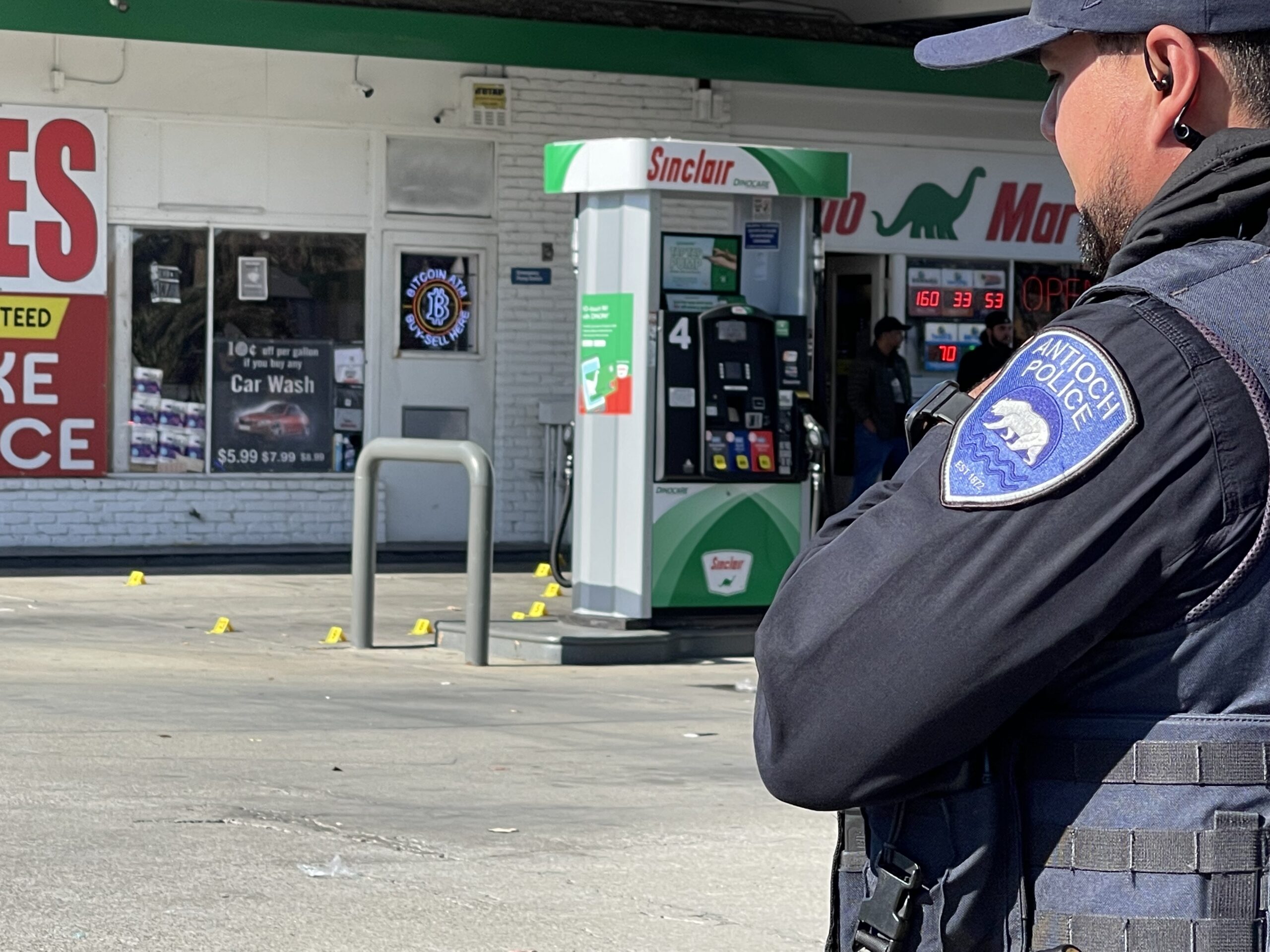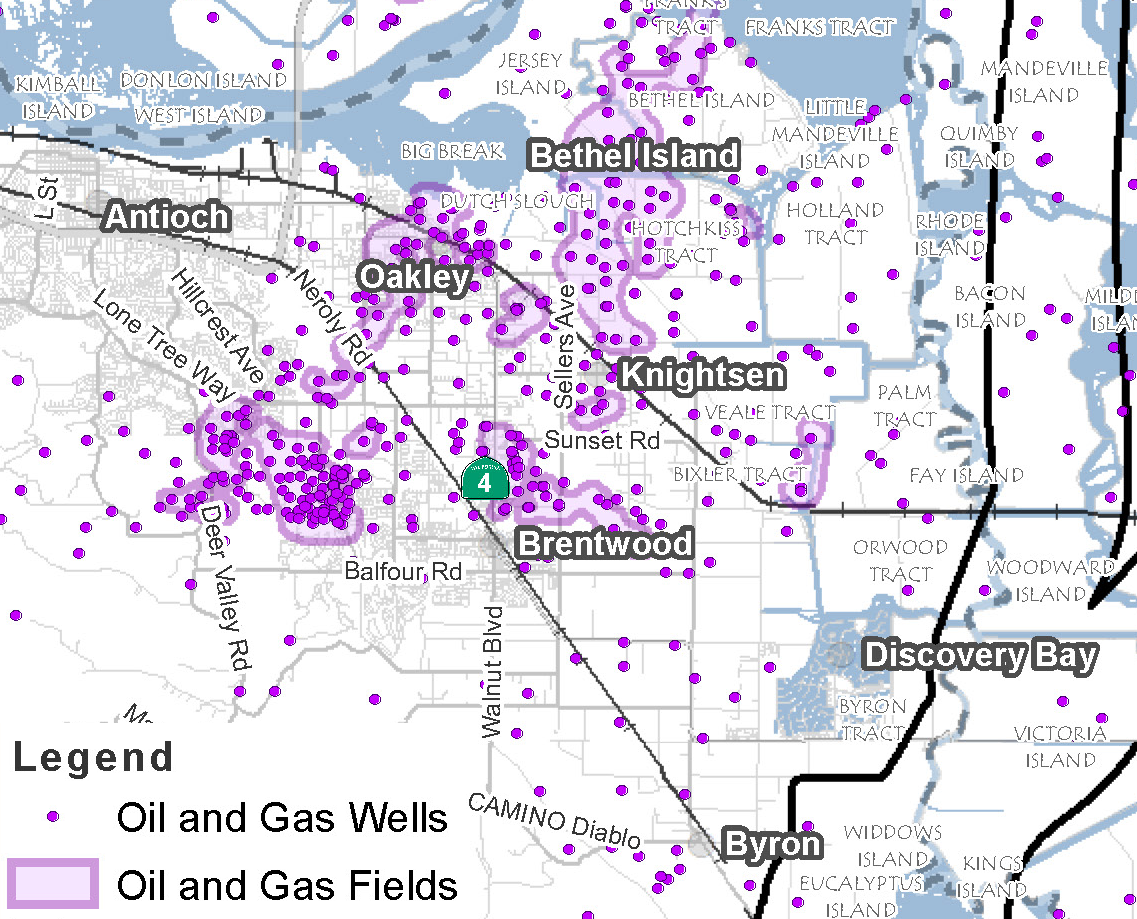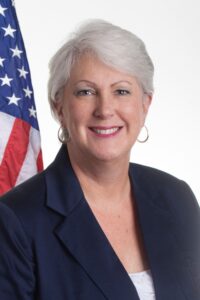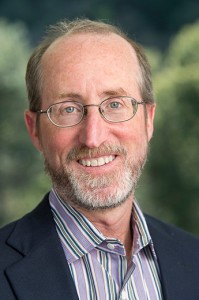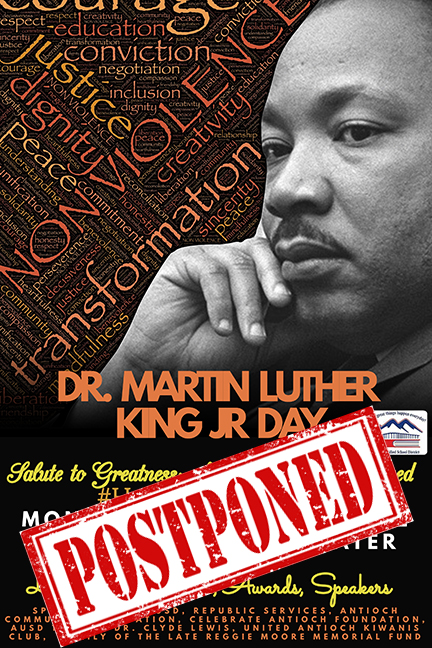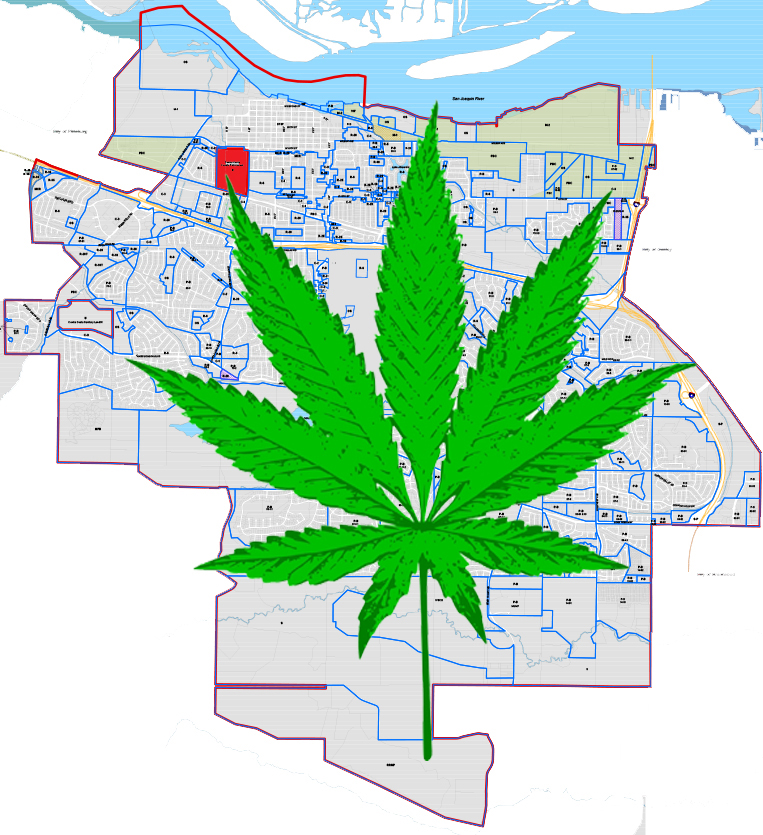Contra Costa College Board votes for gerrymandered redistricting map protecting incumbents, splitting more cities
Thursday, January 13th, 2022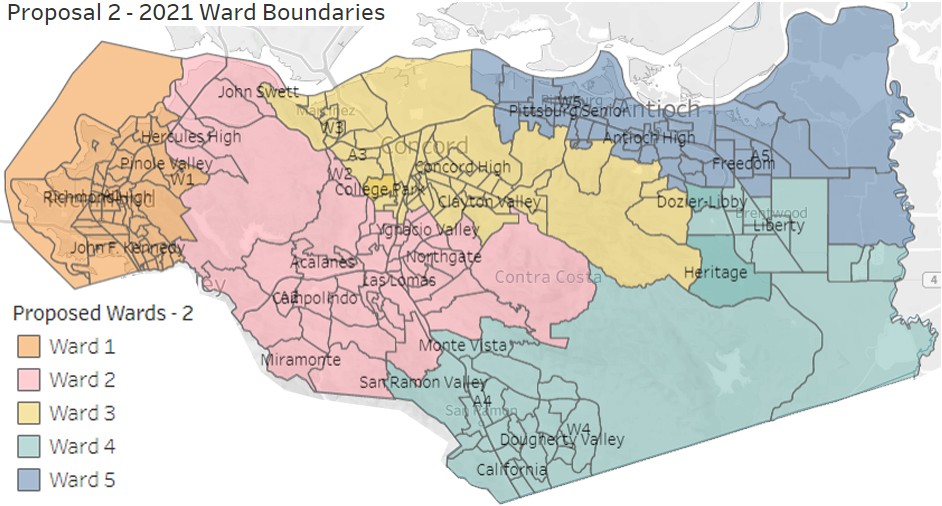
The approved new Contra Costa Community College Trustee Ward Boundaries Map showing the location of high schools in the county, except for Deer Valley High School in Antioch. The name of Dozier-Libbey Medical High School, also located in Antioch, is misspelled. Source: 4CD
4-0-1 vote approves staff drawn map keeping boundaries significantly the same as current, politically drawn wards map from 2011; leaves portions of Antioch in same ward with most of the San Ramon Valley
By Allen Payton
The Contra Costa Community College board, on a 4-0-1 vote, approved a final redistricting, staff-drawn map that keeps the ward boundaries significantly gerrymandered, protecting each of the incumbents for re-election. Ward 5 Trustee Fernando Sandoval voted to abstain. During a public hearing on Ward Equalization Based on the 2020 Census at their regular meeting Wednesday night, the trustees reviewed three maps drawn by district staff, and only one member of the public, a former trustee, spoke. The new wards will go into effect for this year’s November elections, in which both Ward 3 Trustee Rebecca Barrett and Ward 4 Trustee Andy Li face re-election if they decide to run.
In addition, the board again discussed the “Public employee discipline/dismissal/release/complaint” of Chancellor Bryan Reece during a special meeting at 5:00 p.m. But no reportable action was taken during the closed session.
During the staff presentation on redistricting, Executive Vice Chancellor for Education and Technology Mojdeh Mehdizadeh said, “This is the fourth meeting we’ve held in order to achieve equalization” which was the main focus of the staff-drawn maps. Those include a Community Roundtable on Ward Redistricting on Jan. 6.
“You wanted to see more maps and interactive maps, you wanted to have the high school markers placed on the maps and more time for public input,” she continued. “We also asked the public for more input through an online survey…which went live on Dec. 17. We received a total of 12 responses.”
Three maps were offered to the public, two that are very similar to the current wards map, and one similar to the map that the county Board of Supervisors adopted, with a significantly gerrymandered Ward 2 which is very different than Supervisorial District 5. (See related article)
“Nearly 60% (7 people) indicated that Map 2 is the favored map. Map 3 was the least favored map. About 75% of respondents (8 or 9 people) said it was the least favorite,” Mehdizadeh stated. “We continue to offer Map 2 as the best map.”
That was the same map she and the district’s attorney recommended previously.
The three proposed maps show the locations of the high schools in the county except for Deer Valley High School in Antioch and misspelled the name of Dozier-Libbey Medical High School, also in Antioch.
Splits More Cities
While the new trustee ward map has a total population deviation of just 1.7% between wards – which is closer to the intent of the Constitution of ensuring one-person-one-vote – it keeps things pretty much the same as the 2011 map. It continues to split Antioch, Brentwood and Pittsburg in East County, Martinez, Concord, Walnut Creek and now, one of the county’s smallest cities, Clayton, in Central County, and in West County, instead of splitting Pinole, as the current map does, the new map splits Hercules.
Public Comments
Former board trustee Greg Enholm was the only person to speak during public comments saying, “as a Trustee for 2012 to 2020 I did not participate in the ward equalization process for the 2000 and 2010 Census data. But I was affected as a candidate for the subsequent 2006 and 2010 Ward 3 elections created from the 2000 Census Data and the 2012, 2016, and 2020 elections created from the 2010 Census Data.”
“I have been a candidate in five contested elections being elected in two,” he continued. “I have had many opportunities to interact as a candidate with the approximately 200,000 4CD constituents each in Wards 3 and 5 as well as eight years being accountable to all one million 4CD constituents. I believe that the voters must select their representatives not the reverse. I hope that all five trustees agree with that statement and will ask that staff prevent or at least reveal any inappropriate effort by any current or prior trustee to use ward equalization to primarily improve their opportunity to be re-elected or affect any current or prior trustee’s opportunities to be a successful candidate using the 2000, 2010, and/or 2020 ward equalization process.”
Enholm provided each of the trustees with a copy of his comments on the three maps proposed by staff.
“Please read my comment below on all three proposed maps and ask staff if they have assured that the 2000 and 2010 ward maps were created in full compliance with all applicable laws, rules, and regulations in effect when they were adopted,” he said.
Trustee Comments
Ward 3 Trustee Fernando Sandoval was the only member of the board to speak, asking, “Can you tell me the implications for adopting each map? Can we respond to Mr. Enholm’s question…if the maps were created fairly.”
All three maps comply with population balance, Mehdizadeh pointed out.
“Map number 1 is a slight variation of the first one we presented you,” she said. “As it pertains to the second map, we attempted to keep as many cities as tight knit.”
However, both proposed Maps 1 and 2 split more cities than the current ward map.
“The third map was a request that came from the December meeting…that the Board of Supervisors had adopted their map…that was a consideration, as well,” Mehdizadeh stated.
In response to Sandoval she said, “Your question about the 2000 and 2010 process, I personally was not involved in the 2000 process.”
Mehdizadeh again spoke of population balance.
“In 2010 I can tell you I was directly involved,” she stated. “We worked closely with our legal counsel…we spent quality time with our governing board to get public input.”
“Our county Office of Education chose to adopt the same map,” Mehdizadeh added. “That showed a reduction in costs” for printing and mailing ballots during elections.
“I do know they have a meeting on the 19th,” Sandoval said referring to the county Board of Education. “But this year they hired their own demographer. I don’t know why. Is there a reason we wouldn’t wait for them to come back? We want to make sure the alignment is consistent. Would it be prudent to wait until they vote on a final recommendation?”
“That could be our challenge,” Mehdizadeh responded. “Our maps have to be approved by the end of February. It really is who ultimately who votes and makes a determination of their maps. They have been working closely with us, as staff. They are very well apprised of the timelines. It really is up to the board.”
With no other comments by the trustees Board President and District 2 Trustee Judy Walters closed the public hearing.
Board Adopts Map 2
Then later during the meeting, under NonConsent Agenda – Action Items – Miscellaneous, on a motion by Trustee Li and seconded by Ward 1 Trustee John Marquez, the board voted 4-0-1 to adopt Map 2. Sandoval voted to abstain. Student Trustee Austin Green also voted for the motion, but the vote is advisory, only.
However, the resolution signed by both Walters and Marquez, who is the Board Secretary, incorrectly shows Sandoval voted for the map and Marquez voted to abstain. 4CD adopted Ward Equalization Resolution 0122-20B-MI – incorrect
When reached for comment about the mistake Sandoval said “that’s wrong. I’ll call John Marquez.”
When informed of the mistake, Marquez said, “I’ll call the staff member who handles that, Pat (Kaya) and get it corrected, right away.”











